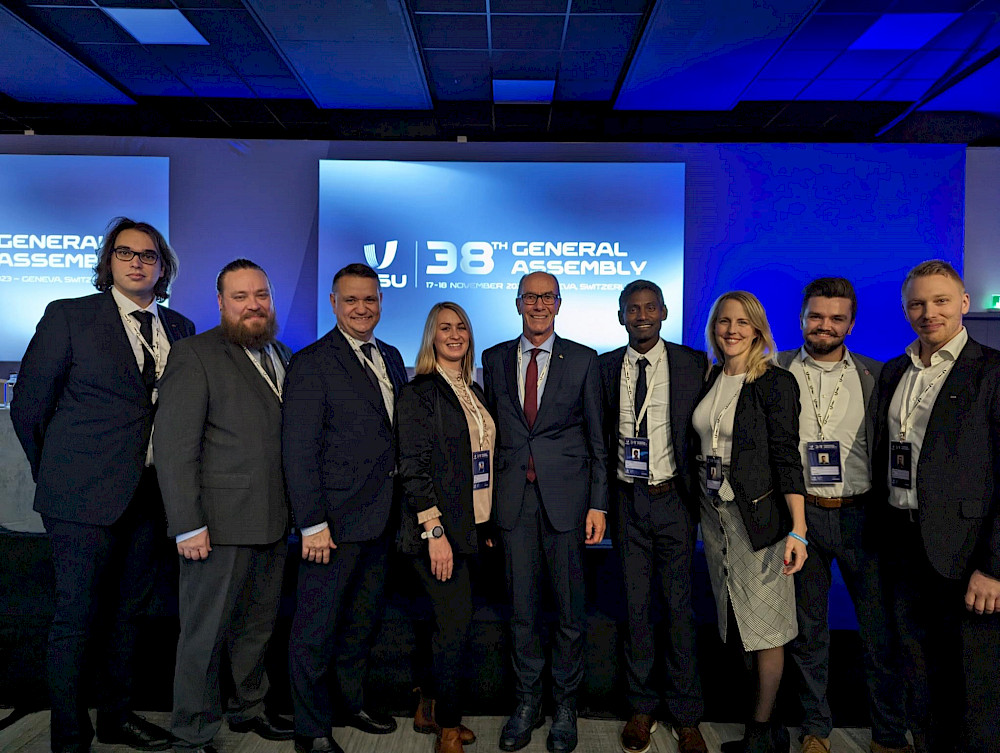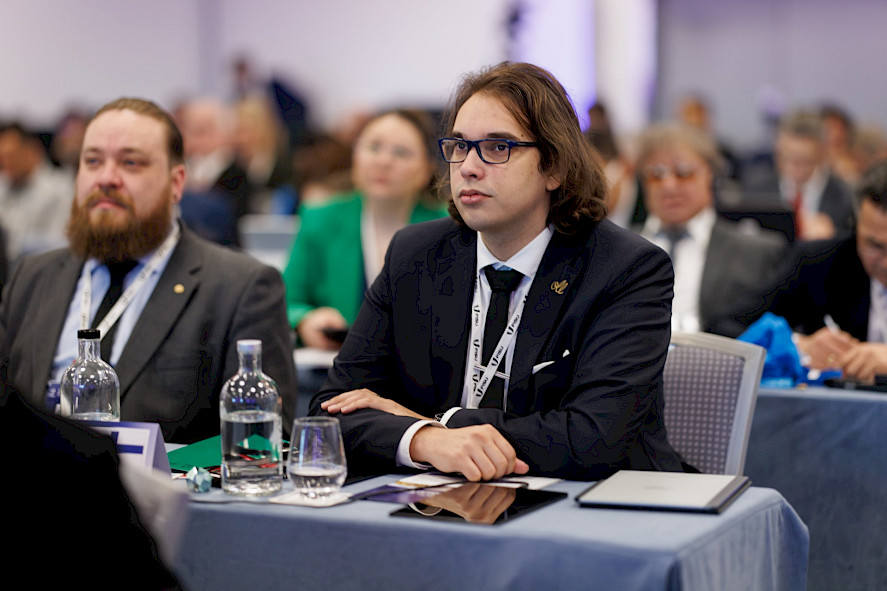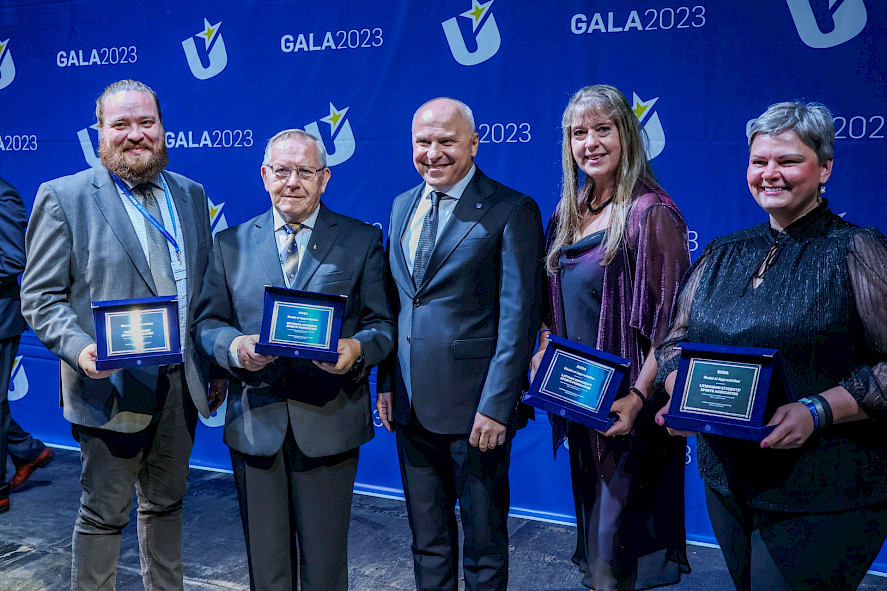OLL represented at General Assemblies of international federations
Elections, Russia and rule changes were hot topics at the general assemblies of the international umbrella organisations of student sports. OLL’s Secretary General Niko Peltokangas, who took part in the assemblies, writes about the decisions that were made.

On the 13th of October in Kusadasi, Turkey, the General Assembly of the European University Sports Association EUSA confirmed that Russian and Belarusian universities and teams are excluded from EUSA’s activities because of the war of aggression. According to the rules, the decision to this effect that the EUSA Board made previously had to be made by the General Assembly. During the discussion we ensured that this decision can only be changed when the original reason, i.e. the war, ends.
The most important decisions made at the General Assembly of the International University Sports Federation FISU were the elections. At the Assembly, held in Geneva on 17–18th of November, Leonz Eder from Switzerland was unanimously elected as President of the Executive Committee. Eder already acted as deputy President during the previous term. Luciano Cabral from Brazil was elected First Viced President, and the other four Vice Presidents come from China, Uganda, Germany and Poland.

The elections show a focus on competitions
Eight Europeans were elected to the 23-member Executive Committee of FISU. Unfortunately our preferred candidates from our neighbouring countries, Yngvild Larsen Shchei from Norway and Kairis Ulp from Estonia, narrowly missed being elected. Our other neighbour, the Russian candidate, was also not elected.
Various competitions are the most visible part of the international umbrella organisations’ work, and the majority of their income comes from competitions. This is also highlighted by the fact that it is getting increasingly hard to find willing competition organisers. The countries who organise Student World Championships had an advantage in the elections.
The development work on university sports aimed at all mainly takes place in various projects (such as FISU’s Healthy Campus) and committees. In terms of getting elected to the Executive Committee, the situation is also impacted by the fact that Nordic student sports rely on a strong student movement which carries out lobbying, while on an international level, university sports are part of the work of the universities. OLL’s Vice President Lari Koskinen was one of the few students – and indeed young people – taking part in FISU’s General Assembly.
A medal for Finland!
Rule changes were also made at both General Assemblies. EUSA changed its rules so that active member federations will have two votes at future General Assemblies as opposed to one. Activity is measured by organising EUSA events (competitions, training or meetings) or by sending athletes to the European Student Championships. OLL fulfils these criteria by a clear margin.
Remote meetings, for which OLL has been pushing for a long time, were added to FISU’s rules. Last winter the Federation did organise its Extraordinary General Assembly remotely, but now this option is available permanently.
EUSA’s General Assembly concluded in an awards ceremony and gala dinner, where the Finnish Student Sports Federation received an award. We received a joint Medal of Appreciation with Estonia, Latvia and Lithuania for the 100th SELL Student Games, which took place in Tartu last spring. Did you know that the annual Sell Student Games are open to all students, regardless of level?

In the main picture of the article, the delegations of Finland, Sweden and Norway with FISU president Leonz Eder (center).
You may also be interested in
-
Mio Kortelainen elected as President of the Finnish Student Sports Federation for 2024
Published:The new President of OLL, which will be celebrating its 100th anniversary next year, is Mio Kortelainen from Laurea University of Applied Sciences. This year’s election was quite an exciting event as the final nomination of candidates for OLL President was not revealed until the very last minute.
-
Julia Tuuri: The policy paper and the code of ethics to be discussed in the General Assembly – but who will be elected to next year’s Board?
Published:The General Assembly is one of the most important and thrilling yearly events for The Finnish Student Sports Federation. OLL’s member organisations all around Finland gather in the General Assembly to decide the most important issues for OLL. The programme includes exciting voting segments, meeting new and old acquaintances, and inspiring conversation.
-
University sports ambassador wanted for international programme
Published:The International University Sports Federation FISU is looking for students to join their FISU Student Ambassador programme for 2025–2026. The purpose of the programme is to train university sports ambassadors to promote university sports and an active lifestyle at home and abroad.
Read more about article: University sports ambassador wanted for international programme
Share this page
Page last updated 5.12.2023
